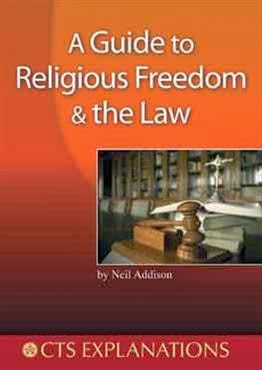The majority of the provisions in The Equality Act 2010 are due to come into force on 1st October 2010. The details are contained in Statutory Instrument 2010 No. 2317
The relevance to Religion Law issues is that the 2010 Act unifies all Anti-discrimination legislation and therefore replaces the
The Employment Equality (Religion or Belief) Regulations 2003
Part 2 The Equality Act 2006 (Religious Discrimination in Goods & Services)
The Employment Equality (Sexual Orientation) Regulations 2003
Equality Act (Sexual Orientation) Regulations 2007
In theory new Act does not change the law but merely consolidates it into one statute however we shall have to see what happens in practice. In the short term there should be no major changes to how equality law is applied where there is conflict between religious discrimination and same sex discrimination.
In the longer term the fact that marriage and civil partnership is now a "protected characteristic" may lead to additional pressures on religious organisations (ie the vast majority) that do not recognise civil partnerships as equivalent to marriage.
Section 193 of the Act which relates to Charities could have an important and harmful long term effect where it says
(1)A person does not contravene this Act only by restricting the provision of benefits to persons who share a protected characteristic if—
(a)the person acts in pursuance of a charitable instrument, and
(b)the provision of the benefits is within subsection (2).
(2)The provision of benefits is within this subsection if it is—
(a)a proportionate means of achieving a legitimate aim, or
(b)for the purpose of preventing or compensating for a disadvantage linked to the protected characteristic
As the case of the Catholic Adoption Agencies and the case of Ladelle
have both shown the idea of "proportionality" is a dangerously subjective concept and ithere is a great danger that this clause will can be used to force religious charities to choose between closing down or acting contrary to their religious ethos and principles.
The Government is still consulting on section 202 which will allow Civil Partnerships to be held on religious premises As I Blogged on 23 February
the main concern with this provision is the possibility that once Civil Partnerships become possible on Religious Premises it will subtly become unlawful for any religious premises to refuse to offer them.
The Government has not brought into force Parts 1 (Socio -Economic Inequalities) or Part 11 Chapter 1 (Public-Sector Equality Duty) and is consulting on these provisions. It is quite possible that they will not be brought into force
Subscribe to:
Post Comments (Atom)



No comments:
Post a Comment